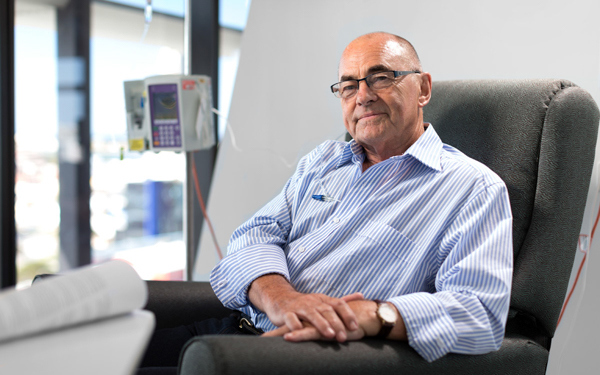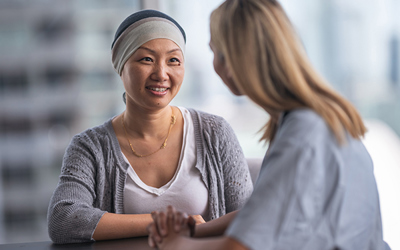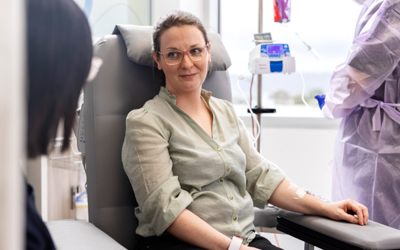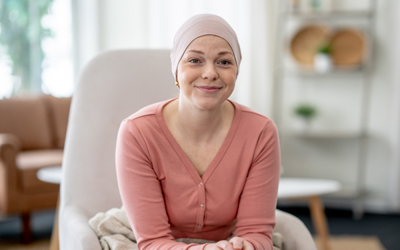Chemotherapy at Icon
Before starting chemotherapy, we understand that you may be feeling overwhelmed and anxious. Knowing what to expect can help you prepare for treatment and ease any stress you may be experiencing. At Icon, we believe in a personal approach to chemotherapy that matches your needs. This means that not every treatment will look the same. However, there are parts of the chemotherapy process that many people may experience.
Your first visit
At your first appointment, you will meet with your medical oncologist or haematologist who will talk you through your diagnosis and treatment plan. This will depend on your type of cancer, health and preferences.
You will then meet one of our experienced nurses to discuss possible treatment side effects and how to manage them. Make sure to ask questions to help you gain a good understanding of your diagnosis and treatment. Our team will be here to address them anytime during your treatment.
We encourage you to bring a loved one to your appointment. They can be there for support and can also ask any questions you may not think of. It’s normal to feel some anxiety at this time, and we are here to help you and your family work through this.
Starting chemotherapy treatment
When it’s time to start your treatment, you may have a number of tests done, including:
Measuring your weight and height to find out the right dose of chemotherapy
A blood test to ensure your blood counts are at a satisfactory level
Measuring your blood pressure, pulse, breathing and temperature to make sure that you are ready for treatment
Our experienced team will seat you in one of our comfortable reclining chairs while you receive your treatment. In many cases, you will have an intravenous (IV) drip inserted into your vein to help you receive your chemotherapy treatment, or you may have a temporary small tube called a central venous access device (CVAD) inserted instead. This helps the chemotherapy travel into your body. Throughout your stay, you can move around, read a book, use the free Wi-Fi or do anything else that helps you feel comfortable.
Depending on your treatment, you might also be given anti-nausea medication that make you feel drowsy. If this happens it is important you have a family member, friend or carer take you home. If you need help with transport please speak to our administration team, who can arrange this on your behalf.
Chemotherapy is usually given in multiple courses (cycles) for a set amount of time, or for as long as the treatment is effective. Having the treatment in cycles allows time for the healthy cells in your body to recover between treatments.
What to bring
Having a few personal items can make you more comfortable during treatment. Here is a checklist of things you could bring with you:
Something to read
A favourite book or light magazine can be a calming distraction.
Mobile phone and/or laptop/tablet
Free wireless internet is available throughout our centres to help you stay connected.
Warm clothing
Loose layers will help with access for treatment and let you take clothing off or put on depending on how you’re feeling.
Favourite food or snacks
We have snacks, water, tea and coffee, but you might want to bring your favourite snacks and drinks.
A family member or friend
All our treatment areas have room for your carer to come along for support and give you a ride home.
Some important essentials
Current medications including any creams, inhalers, patches or drops
Any medicines bought over-the-counter or at a supermarket
Any supplements or natural medicines you take




